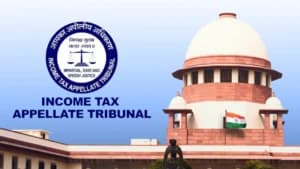The Supreme Court of India has advised two journalists from Uttar Pradesh, Abhishek Upadhyay and Mamta Tripathi, to explore alternative legal remedies regarding the FIRs registered against them for publishing articles on caste-based appointments in government positions. While disposing of their writ petitions, the Court continued their interim protection from arrest for four weeks, allowing them to seek legal redress.
Background of the Case
Abhishek Upadhyay and Mamta Tripathi had approached the Supreme Court, seeking relief from FIRs lodged against them after their investigative report on caste dynamics in state administration was published. Their article, which was also shared on social media platform X (formerly Twitter), led to legal action against them in 2024.
Read Also:- Supreme Court Directs Release of Elderly Woman Held in Assam Detention Centre
Last year, a bench comprising Justices Hrishikesh Roy and S.V.N. Bhatti had directed that no coercive action be taken against Upadhyay in connection with his article titled Caste Dynamics of the General Administration. The Court reaffirmed the importance of press freedom, stating:
"In democratic nations, the freedom to express one's views is respected. The rights of journalists are protected under Article 19(1)(a) of the Constitution of India. Merely because a journalist’s writings are perceived as critical of the government, criminal cases should not be slapped against the writer."
Tripathi, in a separate writ petition, also sought interim protection from arrest over her articles alleging caste-based discrimination in Uttar Pradesh's administration. Her plea was tagged with Upadhyay’s case, and interim protection was granted.
When both cases were heard by a bench of Justices MM Sundresh and Rajesh Bindal, the Court suggested that the journalists seek legal remedies through the High Court. Justice Rajesh Bindal pointed out that the matter should ideally be pursued in the High Court rather than through an Article 32 petition before the Supreme Court.
Read Also:- Supreme Court Criticizes Haryana Government for Delaying Dalit Social Boycott Inquiry
Advocate Amarjit Singh Bedi, representing Tripathi, informed the Court that multiple FIRs had been filed against her despite previous orders from the Supreme Court. He revealed that a total of four FIRs had been registered, with allegations of hurting religious sentiments, though no charge sheet had been filed yet.
"I had actually filed a quashing petition before the High Court, but it was dismissed. The Court held that the trial must proceed. That matter is also pending," Bedi stated during the hearing.
Justice Bindal further observed that since a writ petition had been filed, the Court would consider the matter if a Special Leave Petition (SLP) was submitted. However, the complainant was not included as a party in the ongoing proceedings, making the case more complex.
Despite hearing the arguments, the Supreme Court declined to entertain the writ petition but granted an extension of interim protection for four weeks. This was done to allow the journalists to approach the appropriate legal forums for further relief.
"We are not inclined to entertain the petition. However, interim protection of four weeks is granted to the petitioner to enable them to seek appropriate remedy," the Court ordered.
Case Details: ABHISHEK UPADHYAY v. THE STATE OF UTTAR PRADESH AND ANR|W.P.(Crl.) No. 402/2024 and others














